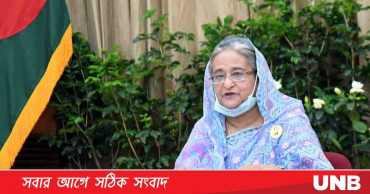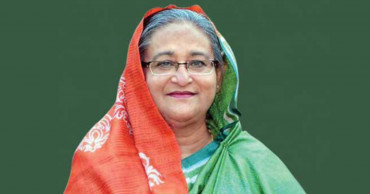vocational education
BCCCI signs MoU to enhance Bangladesh-China vocational, skills cooperation
Bangladesh China Chamber of Commerce & Industry (BCCCI) has signed a Memorandum of Understanding (MoU) with Beijing Ark Galaxy Technology Co., Ltd. and China Civil Engineering Construction Corporation (CCECC) with a view to strengthening bilateral cooperation in vocational education, skills development, and human resource capacity building between Bangladesh and China.
The MoU was signed on January 3 at the BCCCI Office and aims to establish a long-term and sustainable cooperative framework between affiliated vocational institutions of Bangladesh and leading vocational institutions of China.
Under this strategic partnership, the parties will collaborate on technical training programs, institutional exchanges, technology sharing, and capacity development initiatives, thereby contributing to industrial growth and workforce modernization in both countries.
Read more: Beijing seeks deeper cooperation with Dhaka to advance ‘Health Silk Road’
The signing ceremony was attended by Mohd. Khorshed Alam, President of BCCCI; Yue Xueshan, General Manager of Beijing Ark Galaxy Technology Co., Ltd.; and Lu Yong, Deputy General Manager of CCECC Bangladesh Ltd. (China Civil Engineering Construction Corporation).
On behalf of BCCCI, the event was also attended by Secretary General Jamilur Rahman, Adviser to President Md. Faizul Alam, Vice President Khandaker Atiqur Rahman, Vice President Masud Ali Khan, Director Asif Haque Rupo, Executive Director Md. Abu Taher & Dr. Md. Sadi, Principal, Yidai Yilu Chinese Institute.
This MoU, BCCCI on Sunday said, represents a significant milestone in strengthening institutional cooperation and fostering long-term partnerships aimed at supporting inclusive development and industrial competitiveness.
Read more: 17 private banks sign MoU to support universal pension scheme
1 month ago
Tianjin Vocational College: Pioneering world-class education with outstanding employment rate
Tianjin Light Industry Vocational Technical College delivers top-tier education, producing graduates renowned for their virtue, skills, and abilities.
Their excellence has garnered widespread praise from employers, contributing to an impressive employment rate exceeding 95%.
As part of the “China Up Close: Tianjin Tour,” journalists from various countries recently visited the institution.
The visit was co-hosted by China Global Television Network (CGTN) and the Tianjin Municipal People's Government.
Tianjin Light Industry Vocational Technical College, with approximately 11,000 students and over 500 staff, is recognised as a key vocational institution in China, its President Li Yunmei told journalists.
7 months ago
Govt focuses on digital and vocational education to build skilled manpower: Official document
The government has prioritised vocational and digital education at secondary and higher levels in a mid-term plan that seeks to create jobs and skilled manpower, according to an official document.
The plan (FY2021-22 to FY2023-24) envisages using science and technology education as a key strategy for development and poverty alleviation.
Apart from expanding vocational education the plan seeks to develop necessary infrastructure for digital education.
It also underscores the need for increasing the financial opportunities for teachers and encouraging activities related to creative talent exploration.
To this end, according to an official document, following the 8th Five Year Plan, SDGs 2030 and Vision 2041, appropriate activities and projects are being taken by ensuring quality higher education in all fields, encouraging students to do research, ensuring information technology based education, expansion of science based education, encouraging women in higher education, reducing the dropout rate, etc. as set under the National Education Policy 2010.
The objectives are to improve the overall quality of education, eliminating inequalities in education, improving quality and expanding education.
The document said that the government is currently implementing the 'Secondary Education Development Program'.
Activities under this include- expansion of infrastructure and setting up of new infrastructure with the help of existing development projects to enhance the capacity of secondary and higher secondary education, setting up of Upazila Training and Resource Centers under integrated education information management program, expansion of MPO schemes in private schools, provision of scholarships for outstanding students, and training of teachers.
During the COVID- 19 transition, online classes at secondary and higher secondary levels and teaching on important subjects on television under the title of 'My school in my house' have been introduced.
The Technical and Madrasa Education Division has placed emphasis on job-oriented technical and vocational education to facilitate the development of skilled human resources.
Some steps have already been taken to expand technical and vocational education, ensure job-focused education, and attract the general public towards technical and vocational education, said the document.
For example, projects for making computer/ technical education compulsory, organizing skill competitions, setting up technical schools and colleges in 329 upazilas along with the existing 100 technical schools and colleges, setting up women's polytechnics in 4 divisional cities, and setting up 4 engineering universities in 4 divisions are ongoing.
The ministry of primary and mass education has taken multifaceted initiatives to ensure quality and universal primary education, and has adopted and implemented a number of development activities.
For example, the ministry has nationalised 26,193 private primary schools.
It has started using mobile banking for stipends to about 14 million students across the country by making payment to their mothers on their mobile phones.
Further, infrastructure of government primary and modernised primary schools has been developed, free textbooks are distributed, and computers and multimedia are provided in schools.
In addition, during the COVID-19 pandemic, the government has started broadcasting "Learn at Home" lessons on television to keep students focused on lessons, and lessons are being broadcast on radio and community radio for students in remote areas.
In the medium term, the ministry will provide quality pre-primary and
primary education, basic education, ICT, English, sub-cluster training to teachers.
One of the main objectives of the ministry of science and technology is to build a science and technology-minded nation.
The ministry has undertaken research activities on, and formulated
policies and laws related to, science and technology.
In the medium term, as per the document, the main development priorities of the ministry will be providing fellowships in MS, PhD and post-doctoral courses at home and abroad for higher education in science, completion of various feasibility studies for construction of nuclear power plants in southern Bangladesh.
It also included providing world-class specialised library services for students and researchers, discovering low-cost tide and web power generation methods.
The other priorities are developing infrastructure and human resources for marine resource research, improving the quality of industrial products, and ensuring the quality of food and food products.
4 years ago
ILO helps develop campaign strategy for vocational education
The Department of Technical Education, through the Skills 21 project, will start a year-round campaign to increase the popularity of Technical and Vocational Education and Training (TVET).
The campaign strategy has been developed with the assistance of the International Labour Organization (ILO), the implementor of the Skills 21 project funded by the European Union.
An orientation workshop was held in Dhaka on implementing this campaign strategy on Saturday, 18 September, 2021. Principals, Chief Instructors and officials of various technical education and training institutes, including polytechnic institutes, technical schools and colleges of the country and officials of the Technical and Madrasah Education Division (TMED) and the Dept. of Technical Education (DTE), took part in the workshop.
Read:ILO: Slow jobs recovery, increased inequality risk long-term COVID-19 scarring
The workshop was inaugurated by the Secretary of the Technical and Madrasah Education Division, Md. Aminul Islam Khan. “Creating young people’s interest in technical education is an important task at the moment,” he said. “Research is underway in developed countries as well as in developing countries to expand technical education. The Government of Bangladesh has also made it a priority in the continuity of development. We want mainstream students to be attracted to technical education and help build a skilled Bangladesh,” he added.
Tuomo Poutiainen, Country Director of the International Labour Organization, said, “The awareness-raising could only be effective when it reflects the stakeholders’ right messages, language, and communication channels. The campaign aims to use specific media to convey particular messages to the audiences, such as skills training, job opportunities, and decent employment.”
Maurizio Cian, Head of Cooperation of the European Union, said at the workshop that the European Union has been working since 2007 to reform Bangladesh’s technical education system. Funding has been provided to develop the National Skills Development Policy-2011, NTVQF, quality assurance system etc. The EU envoy called for an effective awareness campaign to give young people a clear idea of technical education’s scope, effectiveness, context, and job opportunities.
Other speakers at the workshop said Bangladesh, as a country, is currently feeling the urge to ensure maximum utilization of demographic dividends. At least two million young people enter the labour market every year. The speakers emphasized raising the standard of technical education and training institutions to turn them into skilled people.
Read: Bangladesh elected ILO Covid-19 Technical Committee chair
It was informed at the workshop that the pilot program is starting in the first week of October at Sylhet Technical School and College as part of a detailed work plan across the country. This is followed by campaigns at Bangladesh Sweden Polytechnic Institute, Kaptai, Rangamati and Gaibandha Technical Training Center.
Field-level information and recommendations will be integrated to finalize the strategy for this campaign. Based on the experience gained after organizing the first part of the program in three organizations in Sylhet, Rangamati and Gaibandha, the next part of the program will be organized in four more partner TVET institutes of the ‘Skills-21’ project.
Another workshop will be organized later based on all the results at the field level. There, those concerned will work to make the strategy more perfect. This strategy will then be implemented as an awareness program in technical and vocational education and training institutions all over the country.
4 years ago
PM provides Tk 74.81 cr for non-MPO teachers, employees
Prime Minister Sheikh Hasina on Wednesday provided Tk 74.81 crore for 1,67,225 non-MPO teachers and employees of the country as they have been passing days in miseries to the pandemic that led to the closure of educational institutions for a long time.
According to a media release issued by the PMO Press Wing, there are 105,785 teachers and employees in general education while the number is 61,440 in madrasah and Ebtadayee Madrasah and vocational education.
Sheikh Hasina provided Tk 46.63 crore in favour of Secondary and Higher Secondary Education Division while Tk 28.18 crore in favour of Vocational and Madrasah Education Division.
Also read: PM provides Tk 122 cr assistance for mosques
The release said that each teacher will get Tk 5,000 while the employees will get Tk 2,500 each.
On May 2, the Prime Minister provided cash support of Tk 2,500 to each 36.5 lakh low-income families engaged in different occupations so that they can survive in this tough time.
Each family directly received Tk 2,500 through G2P (Government-to-Person) as the cash will be sent through mobile financial services (MFS) – Nagad, bKash, Rocket and SureCash.
Also read: PM provides financial assistance to 6,959 Qawmi madrasas
More than Tk 1,500 crore has already been allocated to ease the sufferings of the marginalised people during the second wave of coronavirus.
Soon after the second wave of coronavirus came in sight, the Prime Minister instantly directed the authorities concerned to start the activities of humanitarian assistance.
Since the Covid-19 lockdown was enforced from April 14 last, marginalised people like temporary workless people, destitute, day-labourers, rickshaw- and van-pullers, transport workers, the third gender and beggars in urban and rural areas.
Also read: PM provides financial assistance to 8 organisations
As per the PM’s directive, the Disaster Management and Relief Ministry instantly sent Tk 590 crore to the field-level administration to provide support to the needy people and the disbursement of the money continues.
Besides, the Prime Minister allocated Tk 10.5 crore against deputy commissioners from her relief and welfare fund to provide emergency assistance to the poor and destitute.
The Prime Minister has also provided Tk 10 crore to the Journalist Welfare Trust as assistance for the journalists who are facing hardship due to the fallout of the pandemic.
4 years ago
Emphasis on vocational education as world needs skilled manpower: PM
Prime Minister Sheikh Hasina on Sunday said the government has given utmost importance to vocational education as the world needs skilled manpower for the upcoming fourth industrial revolution.
6 years ago


.jpg)







